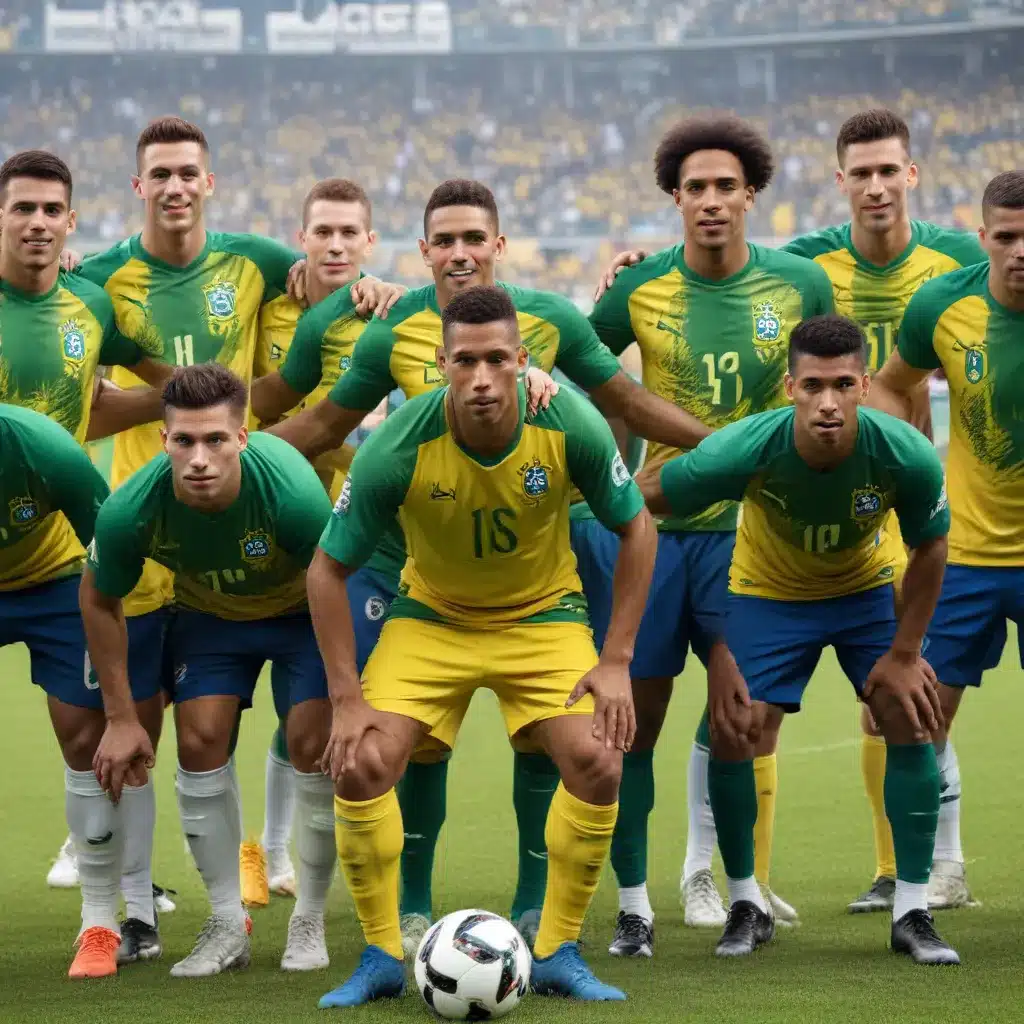
Brazilian Football Teams
Football is deeply ingrained in the cultural fabric of Brazil, with passionate fans and fierce rivalries between the country’s various states. At the state level, the Campeonato Paulista, Campeonato Carioca, and Campeonato Mineiro are among the most prestigious and competitive championships, showcasing the talent and tactical sophistication of teams from São Paulo, Rio de Janeiro, and Minas Gerais respectively.
These state-level leagues have long been breeding grounds for future stars, with iconic clubs like Corinthians, Flamengo, and Cruzeiro producing some of the world’s greatest footballers. Beyond the individual brilliance of players, the success of these teams is often attributed to their cohesive tactics, disciplined training regimes, and unwavering team spirit – all of which are heavily influenced by the integration of sports psychology principles.
Sports Psychology in Brazilian Football
The psychological aspects of the game have become increasingly recognised as crucial contributors to a team’s performance, with Brazilian football teams increasingly incorporating sports psychologists into their coaching staff. From instilling a winning mentality to fostering emotional regulation and team cohesion, these experts play a pivotal role in shaping the mindset and collective dynamic of the players.
Psychological Aspects of Football
Motivation: Maintaining high levels of motivation is essential for players to consistently perform at their best, especially during the gruelling state championship campaigns. Sports psychologists work closely with players to identify their intrinsic and extrinsic motivations, aligning them with the team’s goals and fostering a shared sense of purpose.
Confidence: Self-belief is a cornerstone of success in football, and sports psychologists are adept at building and reinforcing the confidence of players, particularly during periods of adversity or poor form. Techniques such as visualisation and positive self-talk are employed to help players overcome mental barriers and perform to their full potential.
Emotional Regulation: The high-stakes nature of state-level football can elicit a range of intense emotions, from the euphoria of scoring a decisive goal to the frustration of a tough loss. Sports psychologists equip players with strategies to manage these emotional responses, enabling them to make clear-headed decisions and maintain focus during crucial moments.
Impact of Sports Psychology
Player Mindset: By addressing the mental and emotional aspects of the game, sports psychologists help players develop a winning mindset, resilience, and the ability to thrive under pressure. This translates to enhanced decision-making, improved focus, and a stronger collective identity.
Team Cohesion: Effective sports psychology interventions foster a sense of unity and collective responsibility among team members, breaking down barriers and encouraging open communication. This enhanced team cohesion can be a crucial factor in the high-intensity rivalries that characterise state-level football.
In-Game Decision Making: During the heat of a match, the ability to make split-second decisions can be the difference between victory and defeat. Sports psychologists work with players to sharpen their cognitive skills, hone their problem-solving abilities, and enhance their situational awareness, all of which contribute to more astute in-game decision-making.
Shaping Football Performance
Role of Sports Psychologists
Player Assessments: Sports psychologists play a vital role in evaluating the mental and emotional state of players, identifying areas for improvement and potential vulnerabilities. This allows them to develop tailored intervention programs that address the unique needs of each individual.
Mental Training Programs: Drawing on a range of evidence-based techniques, sports psychologists design and implement comprehensive mental training programs that complement the physical and tactical aspects of a team’s preparation. These programs focus on enhancing focus, managing stress, and developing coping strategies.
Performance Enhancement: By optimising the psychological well-being and resilience of players, sports psychologists contribute directly to on-field performance. Their interventions help players overcome mental obstacles, maintain composure under pressure, and maximise their potential, ultimately leading to improved results for the team.
Challenges and Opportunities
Adoption of Sports Psychology: While the value of sports psychology is increasingly recognised in Brazilian football, the integration of these principles into the coaching and training regimes of state-level teams varies. Overcoming resistance to change and demonstrating the tangible benefits of sports psychology remains an ongoing challenge.
Integration with Coaching Staff: For sports psychology to have a truly transformative impact, it must be seamlessly integrated into the overall coaching philosophy and training methodology. Fostering strong partnerships between sports psychologists, head coaches, and other members of the technical staff is crucial for ensuring a cohesive and holistic approach to player development.
Long-Term Player Development: By embedding sports psychology principles into the training and development of young players, state-level teams can cultivate a generation of mentally resilient and tactically astute footballers. This long-term investment in player well-being and psychological growth can pay dividends in the form of sustained success and the continued dominance of Brazilian football on the global stage.
The Brazilian Football Context
Brazilian football is a cultural phenomenon, with the sport deeply embedded in the national identity. Passionate fans, fierce rivalries, and a rich history of iconic clubs and legendary players all contribute to the unique atmosphere of the state-level championships.
The Campeonato Paulista, Campeonato Carioca, and Campeonato Mineiro are not merely football competitions – they are battlegrounds where the pride and prestige of each state is fiercely contested. Fans flock to the stadiums, donning their team’s colours and creating an electrifying atmosphere that fuels the players’ performances.
Within this competitive landscape, the integration of sports psychology has become a crucial factor in shaping the fortunes of state-level teams. By addressing the mental and emotional aspects of the game, sports psychologists are helping players and teams navigate the high-pressure environment of Brazilian football, ultimately contributing to the continued excellence and global dominance of the sport in the country.
As the role of sports psychology continues to evolve and become more prominent in Brazilian football, the insights and strategies developed at the state level will undoubtedly have a far-reaching impact, inspiring the next generation of footballing superstars and cementing the nation’s status as a true powerhouse of the beautiful game.

